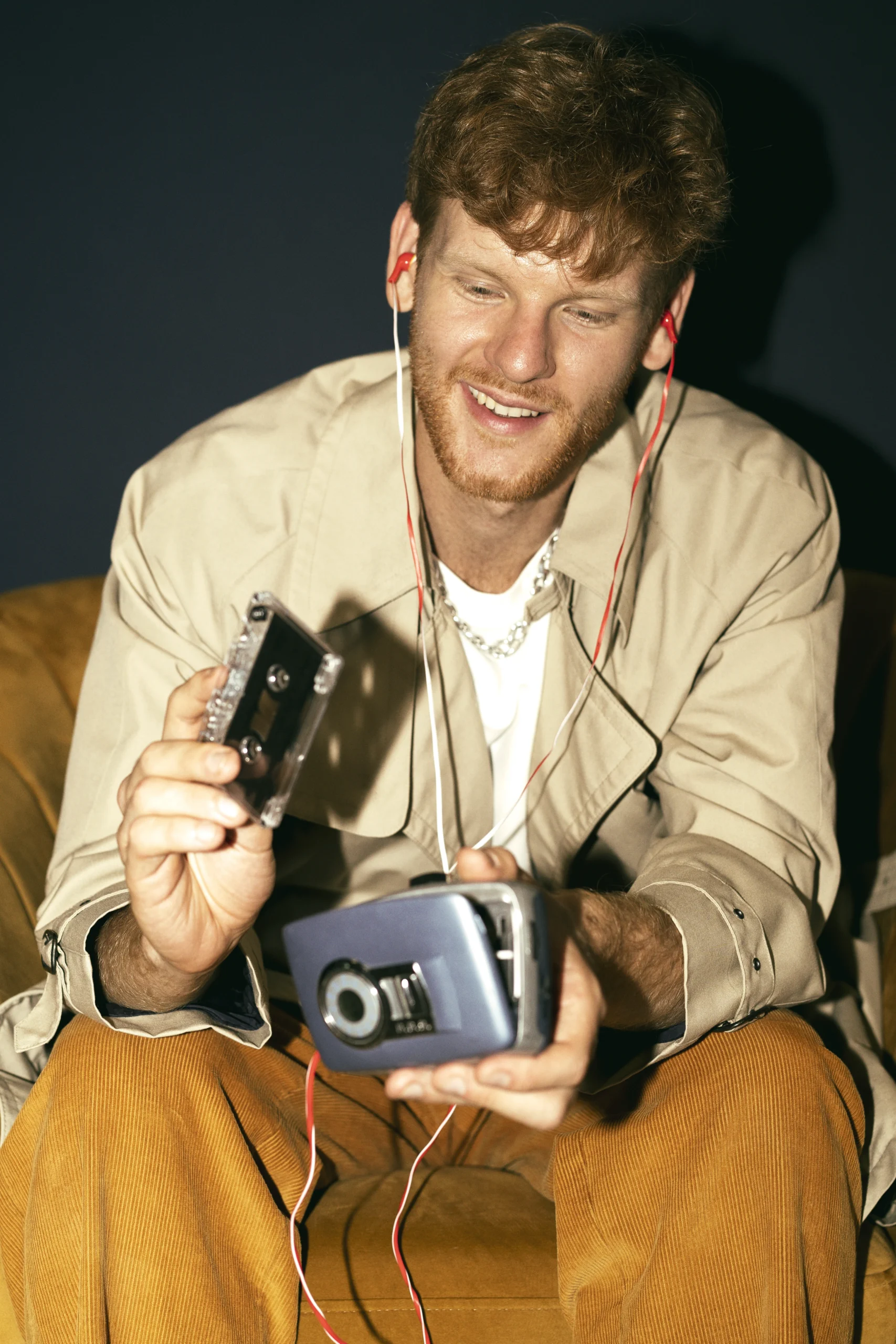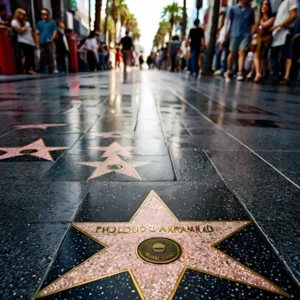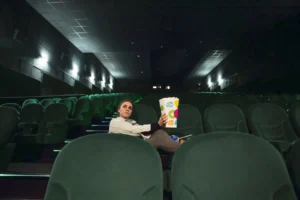Pedro Pascal: How the ‘father of the internet’ conquered Hollywood in record time. Pedro Pascal’s meteoric rise to fame wasn’t exactly overnight—but when it happened, it felt like a digital explosion. One minute, he was a beloved supporting actor in niche roles; the next, he was dominating streaming platforms, red carpets, and meme culture simultaneously.
What truly earned him the title of the “Internet’s Daddy” was a unique blend of sincerity, talent, and his now-iconic roles in The Mandalorian and The Last of Us—two cultural powerhouses that captured a generation’s imagination. Unlike traditional Hollywood heartthrobs, Pascal’s allure lies in his quiet intensity, emotional depth, and self-deprecating humor. Fans didn’t just watch him—they adopted him.
The Breakthrough: Game of Thrones and the Oberyn Martell Effect
Before he became synonymous with armored helmets and post-apocalyptic worlds, Pascal burst into the spotlight with a character that lived and died in a matter of episodes: Oberyn Martell, aka the Red Viper, in HBO’s Game of Thrones (link).
Though he appeared only in Season 4, his performance had a seismic effect on both audiences and casting directors. Oberyn was seductive, vengeful, charismatic—and above all, unforgettable. Pascal brought a swagger and grace that turned him into an instant fan favorite.
Critics hailed his performance as one of the show’s most compelling arcs. According to The Guardian, “Oberyn Martell was the best thing to happen to Westeros since dragons.”
The Power Duo: The Mandalorian and The Last of Us
Pedro Pascal made history by headlining two of the most influential TV series of the streaming era—simultaneously.
🛡️ The Mandalorian (Disney+)
In 2019, Pascal suited up as Din Djarin, the stoic bounty hunter at the heart of The Mandalorian (Disney+ link). Though his face remained mostly hidden behind a helmet, Pascal infused the character with a gravitas and emotional weight rarely seen in sci-fi heroes.
The chemistry between him and Grogu (aka “Baby Yoda”) created an unexpectedly touching father-son dynamic that enchanted global audiences. According to Nielsen, the show topped streaming charts for months and helped revive interest in the Star Wars franchise.
🧟 The Last of Us (HBO)
As Joel Miller in The Last of Us (HBO Max link), Pascal solidified his emotional range. The adaptation of the iconic video game was a risky endeavor, but it paid off massively. The show became HBO’s second-largest debut in a decade, behind only House of the Dragon.
Critics praised Pascal’s nuanced portrayal of grief, trauma, and paternal instinct. The New York Times called his performance “hauntingly sincere”.
Not Just a Face: Pedro Pascal’s Acting Craft and Cultural Impact
Pedro Pascal stands out not just because of what he plays, but how. His approach to acting is deeply empathetic. He often portrays characters wrestling with moral ambiguity, fatherhood, and internal conflict—universal themes presented in refreshingly grounded ways.
He avoids the traditional “alpha male” archetype. Instead, he embraces vulnerability, silence, and restraint. In interviews, he’s spoken about how his Chilean roots and experience growing up in exile shaped his emotional sensibility. That cultural depth informs the humanity he brings to each role.
His bilingualism, South American heritage, and openness about identity have also made him a trailblazer for Latino representation in Hollywood. As Variety noted in a profile, “Pascal is changing what a leading man looks like.”
Behind the Scenes: Pedro Pascal’s Unique Path to Stardom
Before becoming a household name, Pedro Pascal—born José Pedro Balmaceda Pascal in Santiago, Chile—led a life shaped by political exile, cultural adaptation, and relentless artistic dedication. His parents were outspoken opponents of Chile’s Pinochet dictatorship, forcing the family to flee to Denmark and then eventually settle in the United States when Pedro was still a baby.
Growing up in San Antonio, Texas, and later Orange County, California, Pascal developed an early love for performance, drawing inspiration from 1980s cinema and telenovelas. He studied acting at the prestigious Tisch School of the Arts at NYU, grinding his way through off-Broadway stages, experimental films, and guest spots on TV shows like Law & Order and Buffy the Vampire Slayer.
Pascal spent nearly two decades in Hollywood’s shadows. Despite undeniable talent, he was often typecast or overlooked. In a 2014 interview with BuzzFeed, he recalled being close to quitting acting altogether shortly before landing his breakout role in Game of Thrones.
Meme Royalty: How the Internet Embraced Pascal
Pascal’s ascent wasn’t just about streaming hits—it was a perfect storm of pop culture timing, performance charisma, and internet virality. His charm translated effortlessly into meme culture, where sincerity often trumps polish.
Between 2022 and 2023, Pedro Pascal was everywhere—from TikTok montages of him reading thirst tweets to light-hearted interviews filled with self-effacing humor. A particular clip of him eating a sandwich on The Unbearable Weight of Massive Talent press tour went viral on Twitter/X, spawning thousands of remixes and TikTok tributes.
Another catalyst was the recurring fan nickname: “Internet Daddy.” What started as a light joke exploded into a cultural identity. People projected everything from comfort and wisdom to humor and protectiveness onto him.
The phrase trended globally after Pascal embraced the label in interviews, such as his cheeky chat with Entertainment Weekly, where he shrugged and said, “I’m your cool, slutty daddy.” The internet, predictably, lost its collective mind.
🎬 The Unbearable Weight of Massive Talent (2022)
In this meta-comedy, Pascal stars opposite Nicolas Cage—playing an eccentric billionaire fan who hires Cage for a private party. What could have been a one-note gag turns into a surprisingly heartfelt bromance. Pascal’s comedic timing and subtle emotional layers stole the show, earning praise from IndieWire.
🎞️ Prospect (2018)
A lesser-known sci-fi indie gem, Prospect revealed Pascal’s capacity to carry a cerebral, minimalistic story. As a morally ambiguous space outlaw, he balanced danger and depth with masterful restraint. The film developed a cult following and led many to see him as more than a mainstream actor.
🔫 Narcos (2015–2017)
In Narcos, Pascal portrayed DEA agent Javier Peña, a role that required nuance, moral tension, and emotional weight. Set in the complex political landscape of 1980s Colombia, the series gave Pascal space to portray a layered, flawed hero.
This range is what keeps critics intrigued. Whether it’s comedy, indie drama, or big-budget genre TV, Pascal brings gravitas and humility in equal measure.
The Human Behind the Fame: Pedro Pascal’s Off-Camera Appeal
What makes Pedro Pascal such a beloved figure isn’t just his on-screen talent—it’s how genuinely human he seems when the cameras stop rolling. Fans describe him as “unfiltered,” “empathetic,” and “refreshingly normal.”
He’s known for being a vocal advocate of LGBTQ+ rights and for supporting his transgender sister Lux Pascal, a Chilean actress and activist. His public celebration of her identity—featured in outlets like Time—struck a powerful chord with fans seeking authentic allies in the public sphere.
Pascal is also incredibly aware of the responsibilities that come with his platform. In multiple interviews, he has spoken about his gratitude for late-blooming fame, suggesting that had it come earlier, he might not have handled it with the same maturity.
The Power of Collaborations: Creators Who Elevated Pascal—and Vice Versa
One of the most overlooked reasons behind Pascal’s meteoric rise is his ability to build meaningful creative partnerships. Rather than jumping from gig to gig, he has gravitated toward projects where collaboration thrives.
🛡️ Working with Jon Favreau & Dave Filoni — The Mandalorian
Pascal’s alliance with Star Wars producers Jon Favreau and Dave Filoni was pivotal. Despite the physical limitations of playing a helmeted character most of the time, Pascal infused Din Djarin with a sense of tenderness and restraint that resonated globally.
🧟 Craig Mazin & Neil Druckmann — The Last of Us
Collaborating with creators like Craig Mazin, known for Chernobyl, and Neil Druckmann, co-director of the original video game, allowed Pascal to go deep. They trusted him to reinterpret Joel Miller rather than replicate the game’s version—a choice that paid off both critically and commercially.
In an interview with GQ, Pascal noted how this collaboration was “one of the most nourishing creative processes” he’s experienced.
🌟 Co-stars Who Became Real-Life Friends
From his enduring bond with Oscar Isaac, whom he met in a 2005 stage production of Beauty of the Father, to his viral friendship with Nicolas Cage, Pascal thrives on connection. His on-screen chemistry with Bella Ramsey in The Last of Us translated into real-life mentorship and care. Fans have adored their press appearances together, where Pascal often champions Ramsey’s talent and maturity.
Pedro Pascal’s Cultural Impact: Latin Identity and Global Representation
Pedro Pascal’s rise has also been a symbolic victory for Latin American representation in global media. While born in Chile, his fame is notably cross-cultural. He represents a growing wave of Latinx actors who are no longer boxed into stereotypes or confined to secondary roles.
Pascal himself has spoken often about his immigrant roots, identity struggles, and how he didn’t see people like himself on screen growing up. In an op-ed for The New York Times, he wrote candidly about being “perpetually not Latin enough for some, and too Latin for others.”
But rather than shrinking himself to fit into Hollywood’s narrow definitions, Pascal expanded the narrative. He has played Americans, Chileans, cowboys, bounty hunters, drug agents, and space outlaws—without erasing his cultural identity.
This versatility is groundbreaking. It pushes Hollywood to normalize Latin actors in mainstream, universal roles, not just ones rooted in their ethnicity.
What Sets Pedro Pascal Apart in a Crowded Industry?
A frequent question among fans and critics is: Why Pedro Pascal? Many talented actors exist, after all. But few manage to balance charisma, vulnerability, and meme-ability the way he does.
His performances often center around quiet masculinity, a trait increasingly sought after in post-#MeToo Hollywood. Whether it’s Joel crumbling as Ellie walks away, or Din silently watching Grogu float away with Luke Skywalker, Pascal communicates oceans of emotion with a single breath or blink.
The Internet’s Darling: Why Pedro Pascal Became a Meme Icon
Pedro Pascal’s online popularity isn’t just a happy accident—it’s a cultural phenomenon. He’s not just famous; he’s “chronically adored”, as fans often put it.
From thirst traps to wholesome dad edits, he’s reached a unique level of stardom where even his silence is memeable. Whether it’s eating a sandwich in a car (The Unbearable Weight of Massive Talent), misquoting lines from his own roles, or protectively calling himself “Daddy” in interviews, he has tapped into a digital audience like few others.
The internet doesn’t just like him—it projects itself onto him. Pascal has become a kind of avatar for modern masculinity: soft, flawed, kind, protective. This new archetype resonates particularly with younger audiences who reject traditional action-hero tropes in favor of emotionally available characters.
In fact, Pascal has been called the “father of the internet”, a title he embraces with playful self-awareness. He once joked in an interview with Entertainment Tonight that he “takes the job of Daddy very seriously,” winking at the absurdity while leaning into the connection fans feel.
Legacy in Progress: Where Is Pedro Pascal Headed Next?
With multiple blockbuster roles under his belt and a new wave of global fandom at his back, the question now is: What’s next for Pedro Pascal?
We already know he’s cast in Ridley Scott’s Gladiator II and Marvel’s Fantastic Four, where he’ll take on the role of Reed Richards, a choice that signals trust in his versatility. Hollywood is clearly not done with him—and neither are audiences.
But beyond the titles and characters, Pascal is likely to shape Hollywood’s future in deeper ways. His career path challenges traditional timelines (he hit fame at 45), defies ethnic pigeonholing, and redefines what charisma looks like in the age of online intimacy.
He’s also increasingly active in the production side of things. In recent interviews, he’s hinted at moving into directing and storytelling, particularly stories that reflect his cultural background and values.
More Than a Trend: A Blueprint for the Modern Actor
Pedro Pascal’s rise isn’t just inspirational—it’s instructive. In an industry that often burns through talent at the speed of light, Pascal has done the impossible: he became ubiquitous without becoming overexposed.
How? By being deeply real. He’s vulnerable, funny, grateful, protective of his collaborators, and unafraid to be seen. His approach—equal parts professionalism, emotional intelligence, and unfiltered charm—might be the blueprint for the modern leading man.
He has become not just an actor, but a cultural barometer, reflecting and reshaping what people crave in celebrity and storytelling alike. And as long as he keeps trusting his instincts and collaborators, the “Daddy of the Internet” might very well become its king.



